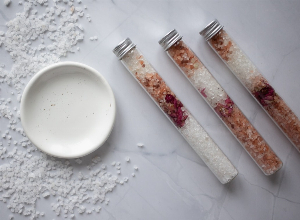Osler-Weber-Rendu Disease: “The bleeding can be hard to live with, but I stay positive no matter what!”
Published Nov 14, 2019 • By Louise Bollecker
Pierre, 52, is a an administrative agent in a penitentiary, married, and the father of 3 children. Diagnosed with Osler-Weber-Rendu disease, he agreed to talk to us about his symptoms, the treatment he receives and his patient-care journey.

Can you explain a little about what Osler-Weber-Rendu disease (aka “hereditary hemorrhagic telangiectasia” or “HHT”) is?
My veins are swollen and slightly weakened causing frequent nose bleeds to the point of leaving me in a state of chronic anemia with a hemoglobin level of between 09 and 10 grams per liter of blood, while the normal level for an adult male is around 13 to 17 grams per liter.
Sometimes the hemorrhaging is so bad that my hemoglobin levels fall below 6 grams per liter, and I have to go get a blood transfusion.
Other parts of the body can sometimes be affected as well (lungs, brain, intestines, etc.).
What were the first symptoms of the disease and when did they initially appear?
Red spots on my face and hands (angioma), caused by the veins filling up with blood and expanding. The first nose bleeds. The angioma showed up when I was around 16 and for the past 2 years I have experienced severe bleeding (I had to get transfusions to restore my hemoglobin levels).
How long did it take for you to get diagnosed? What tests did you undergo?
I didn’t take any tests before getting diagnosed. Usually, you would need to go see a geneticist, but two of my brothers had developed the disease before me, so I knew right away what it was. When my doctor broke the news to me, I was expecting it. It’s a hereditary and very rare disease.
How are you now? Is it curable?
For the moment, there’s no cure and the list of medications is long: Tranexamic acid 3 grams/day to thicken the blood, an ointment containing vitamin E called Rhinovita that I apply every night to the inside of my nose, and ferric carboxymaltose taken intravenously once a month. If we’re lucky that will put a stop to the hemorrhaging, but there’s no guarantee of that. My way of life hasn’t really changed.
Do you go to a hospital/clinic to receive treatment or to a physician?
I go to an in patient care unit at the hospital for my blood transfusions and ferric carboxymaltose treatments. Once a year I also get an endoscopy/colonoscopy and an MRI scan of my lungs and brain.
What’s that hardest part of having this disease?
It’s a difficult disease, particularly with the nose bleeds which can start at work, at a restaurant, the pool, on the train, on the street…I stay positive in spite of it all, but I’m an optimist by nature. I always tell myself that other diseases like cancers or paralysis are much harder to deal with.
Do you have any advice for people newly diagnosed with this condition?
It’s a hard illness to deal with, but never forget that life is still beautiful!
Thank you Pierre, for sharing your story on your experiences with Osler-Weber-Rendu Disease.
What about you? Do you have or are you caring for someone living with Osler-Weber-Rendu disease? How were you diagnosed? And how do you deal with symptoms? Leave your answer in the comment section below.
Comments
You will also like

Spoon theory: What is it and how can it help people living with chronic illness?
Apr 13, 2022 • 7 comments

 Facebook
Facebook Twitter
Twitter

